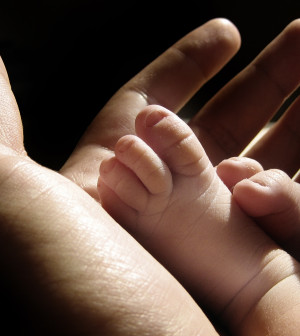- Double Mastectomy May Offer No Survival Benefit to Women With Breast Cancer
- Toxic Lead Found in Cinnamon Product, FDA Says
- Certain Abbott Blood Sugar Monitors May Give Incorrect Readings
- Athletes Can Expect High Ozone, Pollen Counts for Paris Olympics
- Fake Oxycontin Pills Widespread and Potentially Deadly: Report
- Shingles Vaccine Could Lower Dementia Risk
- Your Odds for Accidental Gun Death Rise Greatly in Certain States
- Kids From Poorer Families Less Likely to Survive Cancer
- Tough Workouts Won’t Trigger Cardiac Arrest in Folks With Long QT Syndrome
- At-Home Colon Cancer Test Can Save Lives
Early Puberty in Girls Might Be Linked to Bad Behavior


Girls who hit puberty early might be more likely than their peers to get into fights or skip school, a new study suggests.
Researchers found that girls who started their menstrual periods early — before age 11 — were more likely to admit to a “delinquent act.” Those acts included getting into fights at school, skipping classes and running away from home.
Early bloomers also seemed more susceptible to the negative influence of friends who behaved badly, the researchers said in the Dec. 9 online issue of the journal Pediatrics.
This study is not the first to find a connection between early puberty and delinquency, but none of the findings can prove that early maturation is definitely to blame.
“There could also be other reasons, such as family structure and socioeconomic status, that may drive both early puberty and problem behaviors,” said lead researcher Sylvie Mrug, of the University of Alabama at Birmingham.
Mrug said her team tried to account for factors such as family income, and early puberty itself was still tied to a greater risk of delinquency. So it’s possible, Mrug said, that early maturation affects girls’ behavior in some way.
On the other hand, she said, one theory is that there is a “mismatch” between physical development and emotional development in kids who start puberty earlier than average.
“These girls look older and are treated by others as older, but they may not have the social and [thinking] skills to deal with these external pressures,” Mrug said.
Another expert agreed.
“It is typical for girls with early breast development to be treated differently,” said Dr. Frank Biro, a professor of clinical pediatrics at Cincinnati Children’s Hospital Medical Center, in Ohio.
This study defined early puberty based on menstruation, but breast development comes first. It’s the sign of maturation that other people can see, Biro said.
Research also suggests that American girls today typically develop breasts at a younger age than in past decades. In a recent study, Biro found that black girls typically begin developing around age 8, while white, Hispanic and Asian girls start around age 9.
Among white girls in particular, that age has declined since the 1990s, Biro said. The main reason, his study found, was the rising rate of childhood obesity.
Some researchers are concerned about that trend because of studies like Mrug’s, which link earlier development to certain negative effects — particularly in girls, who have been studied much more than boys.
Biro said earlier puberty in girls has been tied to earlier sexual activity, depression and problems with body image and self-esteem. “Just because you look physically more mature doesn’t mean you’re developing any quicker emotionally and socially,” he said.
These latest findings are based on 2,600 girls from three U.S. cities who were followed from the ages of 11 to 16. Overall, 16 percent said they’d started menstruating before age 11 and were considered “early maturers.”
In general, those girls reported more acts of delinquency at ages 11, 13 and 16. The average difference, however, was not dramatic. At age 13, for example, early bloomers admitted to one delinquent act in the past couple years, versus an average of 0.5 for other girls.
Parents don’t have to be worried that their daughter is destined to run wild just because she developed earlier, Mrug said.
Still, she and Biro both said it’s important for parents to monitor their kids as they grow older — knowing where they are and who they are with — and they may need to start earlier with daughters who mature sooner.
In this study, the importance of girls’ friends was apparent. Regardless of when they started puberty, girls with a best friend who behaved badly — talking back to adults, lying and cheating, for example — tended to have more problem behavior themselves.
And girls who matured early seemed to be particularly influenced by that friend, the researchers found.
But while keeping tabs on your child’s friends is important, Mrug said, kids also need to feel they can talk to their parents.
They are more likely to tell you about their lives, she said, “if there is the foundation of a close, supportive relationship and a history of setting rules and boundaries.”
More information
The American Academy of Pediatrics has more on development during puberty.
Source: HealthDay
Copyright © 2024 HealthDay. All rights reserved.










